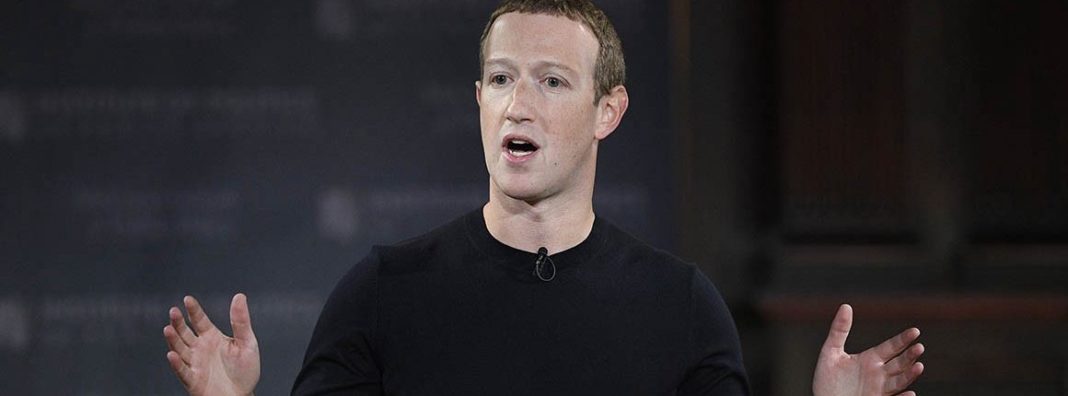
Earlier today, Facebook CEO Mark Zuckerberg gave a wide-ranging, “unfiltered” speech outlining his views on free expression and the internet (you can read it here and a companion oped here).
It marked a rare and forceful speech from someone who has become a bit of a boogeyman among policymakers on both the left and right. It also outlined, in clear and unapologetic terms, where Facebook’s founder falls on the growing debates over digital free speech.
In the runup to the 2020 presidential election, the company has become a lightning rod. And almost everything the company does lately seems to elicit near-immediate controversy (for the latest example, look at the company’s efforts to create a cryptocurrency in a world where thousands already exist). In spite of this, Zuckerberg was not shy about where he stands:
Some people believe giving more people a voice is driving division rather than bringing us together. More people across the spectrum believe that achieving the political outcomes they think matter is more important than every person having a voice. I think that’s dangerous. Today I want to talk about why, and some important choices we face around free expression.
Calling back to Frederick Douglass’s own plea for free speech, Zuckerberg emphasized the role that free expression plays as the “the great moral renovator of society.”
While it is worth recognizing the role that free speech has played in nearly every single one of our most important social movement in the United States, from abolitionists like Douglass to #BlackLivesMatter and #MeToo, it is also worth remembering that Facebook exists as a platform to give voice to those far outside the DC beltway.
Lately, this seems to get lost in the conversation. Congress is holding hearings about “reforming” Section 230, which would be tantamount to “chipping away at the legal foundations of the internet,” and politicians casually throw out the idea of stripping away the most important protections for online speech. Overall, there is a growing lack of awareness that these protections are inspiring the platform’s global policies and ensuring that the spirit of the First Amendment lives in places where no such protections truly exist.
While these American principles have shaped the internet in the past, this is no longer the case today. As Zuckerberg explained, “A decade ago, almost all of the major internet platforms were American. Today, six of the top ten are Chinese.” In fact, the Chinese social media company TikTok has been censoring speech in the United States.
As I’ve previously written, the United States and China have been quietly battling to shape all kinds of technology. This is just the latest example. And that is really the rub in all of this: As politicians in the US try to figure out how to dismantle, break up, and kneecap these platforms, China is aggressively pushing its own versions. If we screw things up, and there is no guarantee we won’t, China will be the one shaping the internet’s future.
In this way, Zuckerberg has put himself in a role not usually reserved for titans of industry and he finds himself “standing athwart history, yelling “Stop,” at a time when no one is inclined to do so.”
But it isn’t just the political threats that he is taking on. Culturally, we seem to be also souring on the idea of free expression and dissent. Here’s how Zuckerberg describes it:
Increasingly, we’re seeing people try to define more speech as dangerous because it may lead to political outcomes they see as unacceptable. Some hold the view that since the stakes are so high, they can no longer trust their fellow citizens with the power to communicate and decide what to believe for themselves.
I personally believe this is more dangerous for democracy over the long term than almost any speech. Democracy depends on the idea that we hold each others’ right to express ourselves and be heard above our own desire to always get the outcomes we want. You can’t impose tolerance top-down. It has to come from people opening up, sharing experiences, and developing a shared story for society that we all feel we’re a part of. That’s how we make progress together.
Indeed. As the next few months unfold, we must remember these words. And when these threats grow, will we be willing to stand up and provide our own full-throated defense of free expression?

